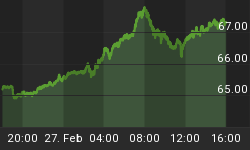One might think that the recent drama over the debt ceiling involves one side wanting to increase or maintain spending with the other side wanting to drastically cut spending, but that is far from the truth. In spite of the rhetoric being thrown around, the real debate is over how much government spending will increase.
No plan under serious consideration cuts spending in the way you and I think about it. Instead, the "cuts" being discussed are illusory, and are not cuts from current amounts being spent, but cuts in projected spending increases. This is akin to a family "saving" $100,000 in expenses by deciding not to buy a Lamborghini, and instead getting a fully loaded Mercedes, when really their budget dictates that they need to stick with their perfectly serviceable Honda. But this is the type of math Washington uses to mask the incriminating truth about their unrepentant plundering of the American people.
The truth is that frightening rhetoric about default and full faith and credit of the United States is being carelessly thrown around to ram through a bigger budget than ever, in spite of stagnant revenues. If your family's income did not change year over year, would it be wise financial management to accelerate spending so you would feel richer? That is what our government is doing, with one side merely suggesting a different list of purchases than the other.
In reality, bringing our fiscal house into order is not that complicated or excruciatingly painful at all. If we simply kept spending at current levels, by their definition of "cuts" that would save nearly $400 billion in the next few years, versus the $25 billion the Budget Control Act claims to "cut". It would only take us 5 years to "cut" $1 trillion, in Washington math, just by holding the line on spending. That is hardly austere or catastrophic.
A balanced budget is similarly simple and within reach if Washington had just a tiny amount of fiscal common sense. Our revenues currently stand at approximately $2.2 trillion a year and are likely to remain stagnant as the recession continues. Our outlays are $3.7 trillion and projected to grow every year. Yet we only have to go back to 2004 for federal outlays of $2.2 trillion, and the government was far from small that year. If we simply returned to that year's spending levels, which would hardly be austere, we would have a balanced budget right now. If we held the line on spending, and the economy actually did grow as estimated, the budget would balance on its own by 2015 with no cuts whatsoever.
We pay 35 percent more for our military today than we did 10 years ago, for the exact same capabilities. The same could be said for the rest of the government. Why has our budget doubled in 10 years? This country doesn't have double the population, or double the land area, or double anything that would require the federal government to grow by such an obscene amount.
In Washington terms, a simple freeze in spending would be a much bigger "cut" than any plan being discussed. If politicians simply cannot bear to implement actual cuts to actual spending, just freezing the budget would give the economy the best chance to catch its breath, recover and grow.















